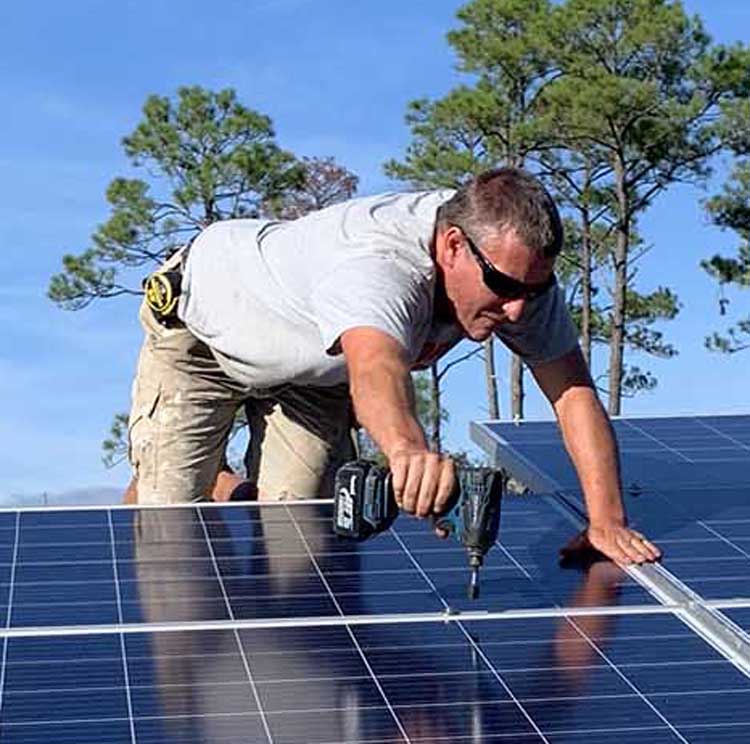Growing rooftop solar scams prompt action from government, co-ops
Courtesy: Molly Christian, National Rural Electric Cooperative Association (NRECA)
Misleading claims of no electric bill. False promises of free solar panels or tax rebate checks. Posing as an electric cooperative representative or co-op partner.
These are some of the deceptive practices that co-ops and the federal government are warning consumers about under a growing number of residential solar scams.
On Aug. 7, the Treasury Department issued an advisory noting a rise in consumer complaints about such practices as rooftop solar installations surge, emphasizing that scams are against the law.
The complaints involve “a small number of unscrupulous solar companies” that consumers say deceived them on the costs and savings of the systems and relied on aggressive sales and marketing tactics, the advisory stated.

rooftop solar systems are against the
law, the Treasury Department warned
in a recent consumer advisory.
(Photo by: 19tencottages.com)
How to spot and report scams
The Treasury’s advisory listed several ways to avoid scams. It urged consumers to gather and compare several quotes and bids, if they are interested in adding solar to their homes.
They should also check a contractor’s history with state consumer agencies and licensing boards; make sure the advertised cost savings are guaranteed; and consult a lawyer, if possible, to help understand contract terms and lengths.
If a business doesn’t make good on its promises or cheats consumers out of money, Treasury encouraged affected homes to report fraud to the Federal Trade Commission at ReportFraud.FTC.gov.
The advisory also included links to locate state consumer protection offices and utility consumer advocates, and to find nonprofit legal services for challenging fraud, abuse and deception.
The advisory was one of several new actions announced by Treasury, the Consumer Financial Protection Bureau and the Federal Trade Commission to address unfair and deceptive consumer practices in the residential solar power sector. The agencies also announced a new partnership with the Department of Energy and Department of Housing and Urban Development to help prevent predatory practices.
Co-ops are also encouraging their communities to use them as resources to decide on residential solar projects and what questions to ask rooftop solar providers (for Steele-Waseca members, contact Steve Nordahl in Engineering Operations at the co-op’s office during regular business hours).
Communication between members and their local co-op is key, said Tolu Omotoso, director of energy solutions at NRECA. “A lot of co-ops have energy advisers or member service professionals who are knowledgeable about these assets, this technology and also the companies. So, they will be able to tell you which company has maybe not been too good to our members.”

Trust
#swce/TRUST




